Neuroscience
-
 Health & Medicine
Health & MedicineBreastfeeding should take a toll on bones. A brain hormone may protect them
The hormone CCN3 improves bone strength even as breastfeeding saps bones of calcium, a study in mice shows.
By Claire Yuan -
 Neuroscience
Neuroscience‘Do I Know You?’ explores face blindness and the science of the mind
In her memoir, journalist Sadie Dingfelder draws on her own experiences to highlight the astonishing diversity of people’s inner lives.
-
 Neuroscience
NeurosciencePain may take different pathways in men and women
Sex differences in the function of nerve cells in mice, monkeys and humans suggest a new way to treat pain conditions.
By Claire Yuan -
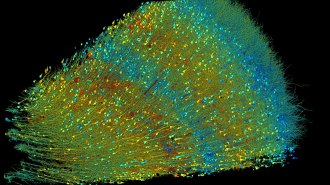 Neuroscience
NeuroscienceBiological puzzles abound in an up-close look at a human brain
Mirror-image nerve cells, tight bonds between neuron pairs and surprising axon swirls abound in a bit of gray matter smaller than a grain of rice.
-
 Neuroscience
NeuroscienceTwo distinct neural pathways may make opioids like fentanyl so addictive
A study in mice looked at how feelings of reward and withdrawal that opioids trigger play out in two separate circuits in the brain.
-
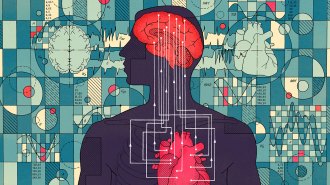 Neuroscience
NeuroscienceThe heart plays a hidden role in our mental health
Deciphering the messages that the heart sends to the brain could lead to new anxiety treatments and even unlock the secrets of consciousness.
-
 Neuroscience
NeuroscienceHow smart was T. rex?
A debate over how to count neurons in dinosaurs is raising questions about how to understand extinct animals’ behavior.
By Freda Kreier -
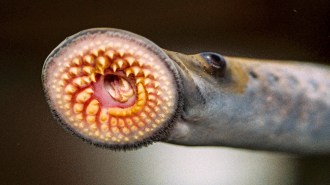 Neuroscience
NeuroscienceLampreys have ‘fight or flight’ cells, challenging ideas about nervous system evolution
The discovery of sympathetic nervous system cells in lampreys draws a closer tie between the animal and complex vertebrates — such as humans.
-
 Neuroscience
NeuroscienceRat cells grew in mice brains, and helped sniff out cookies
When implanted into mouse embryos, stem cells from rats grew into forebrains and structures that handle smells.
-
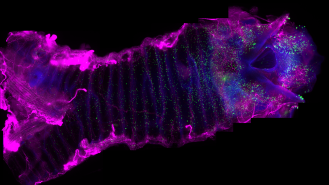 Neuroscience
NeuroscienceThese windpipe cells trigger coughs to keep water out of the lungs
Neuroendocrine cells can sense substances on the way to the lungs and prompt reactions such as coughing and swallowing, experiments in mice show.
-
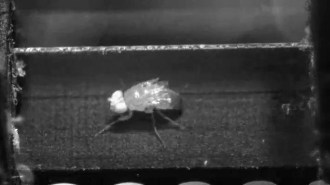 Neuroscience
NeuroscienceTiny treadmills show how fruit flies walk
A method to force fruit flies to move shows the insects’ stepping behavior and holds clues to other animals’ brains and movement.
-
 Science & Society
Science & SocietyIn ‘Get the Picture,’ science helps explore the meaning of art
Journalist Bianca Bosker infiltrates the secretive art world to understand the science and psychology of why art matters to the human experience.
By Shi En Kim